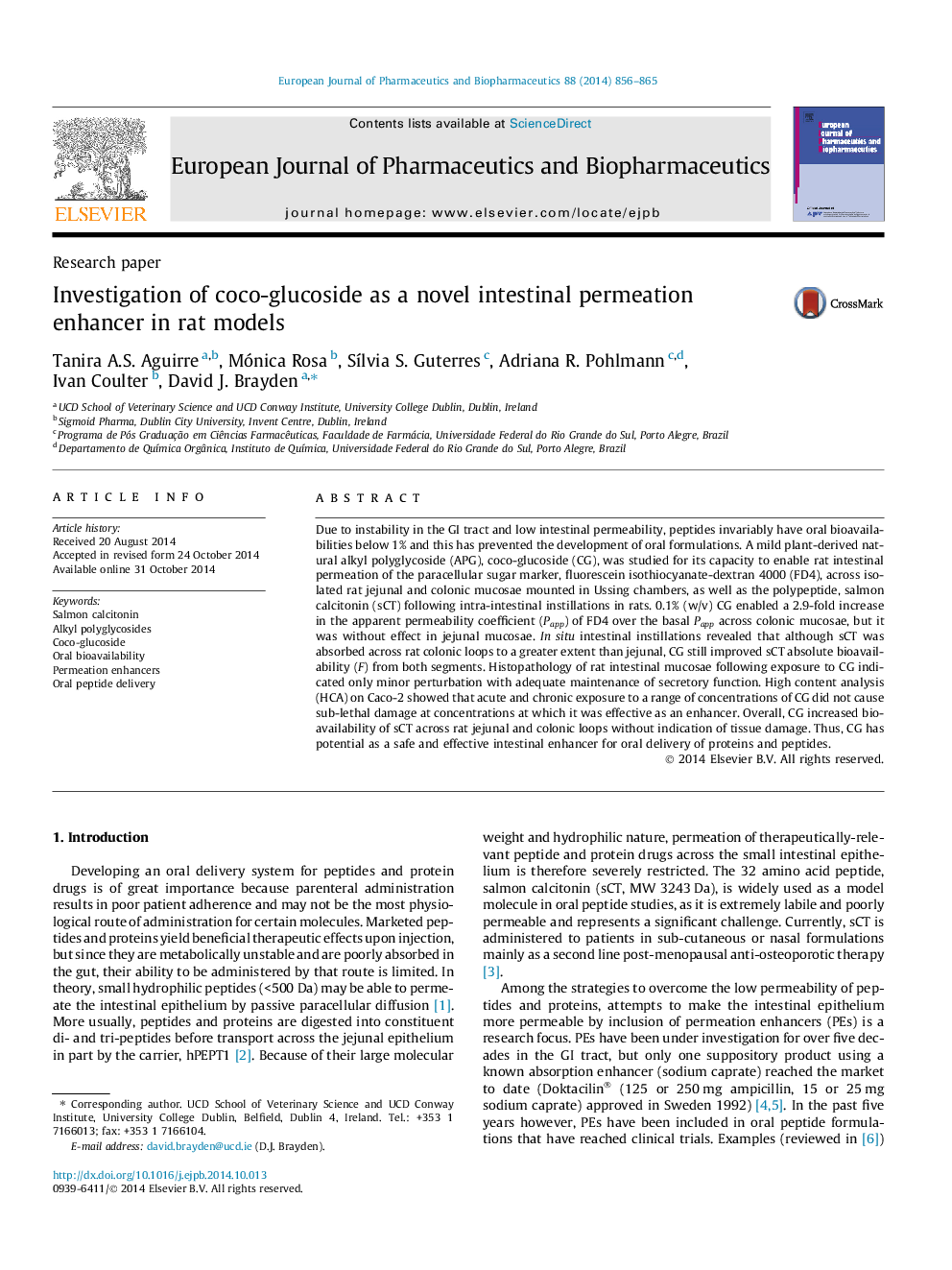| Article ID | Journal | Published Year | Pages | File Type |
|---|---|---|---|---|
| 2083523 | European Journal of Pharmaceutics and Biopharmaceutics | 2014 | 10 Pages |
Due to instability in the GI tract and low intestinal permeability, peptides invariably have oral bioavailabilities below 1% and this has prevented the development of oral formulations. A mild plant-derived natural alkyl polyglycoside (APG), coco-glucoside (CG), was studied for its capacity to enable rat intestinal permeation of the paracellular sugar marker, fluorescein isothiocyanate-dextran 4000 (FD4), across isolated rat jejunal and colonic mucosae mounted in Ussing chambers, as well as the polypeptide, salmon calcitonin (sCT) following intra-intestinal instillations in rats. 0.1% (w/v) CG enabled a 2.9-fold increase in the apparent permeability coefficient (Papp) of FD4 over the basal Papp across colonic mucosae, but it was without effect in jejunal mucosae. In situ intestinal instillations revealed that although sCT was absorbed across rat colonic loops to a greater extent than jejunal, CG still improved sCT absolute bioavailability (F) from both segments. Histopathology of rat intestinal mucosae following exposure to CG indicated only minor perturbation with adequate maintenance of secretory function. High content analysis (HCA) on Caco-2 showed that acute and chronic exposure to a range of concentrations of CG did not cause sub-lethal damage at concentrations at which it was effective as an enhancer. Overall, CG increased bioavailability of sCT across rat jejunal and colonic loops without indication of tissue damage. Thus, CG has potential as a safe and effective intestinal enhancer for oral delivery of proteins and peptides.
Graphical abstractFigure optionsDownload full-size imageDownload high-quality image (81 K)Download as PowerPoint slide
